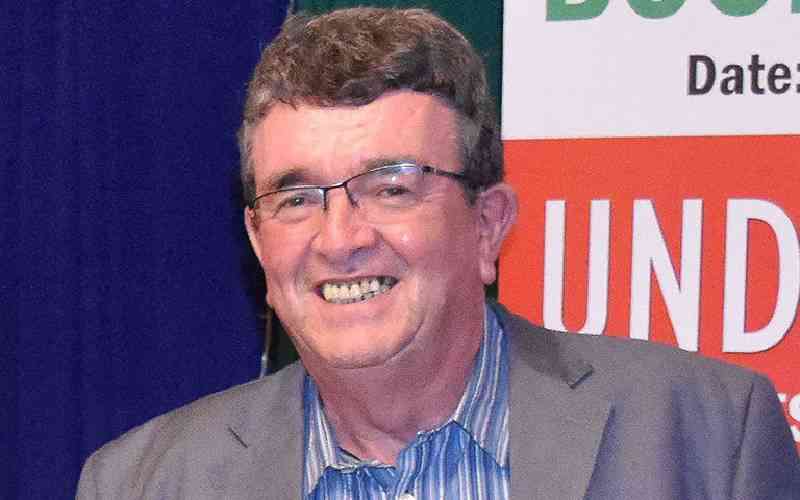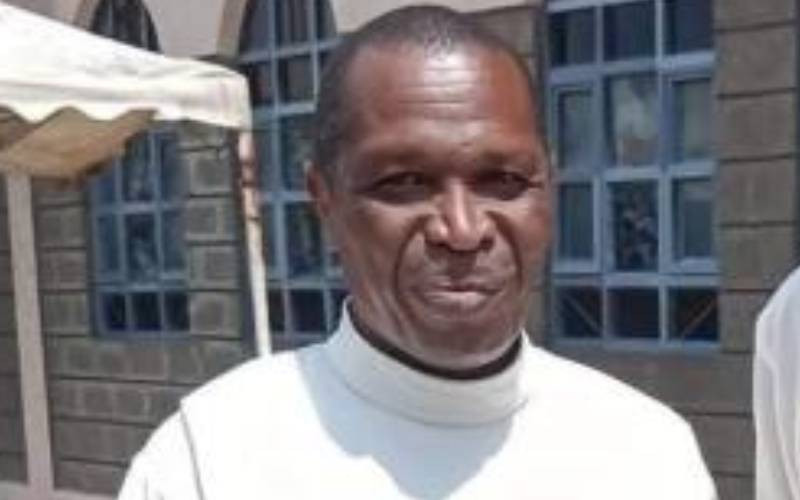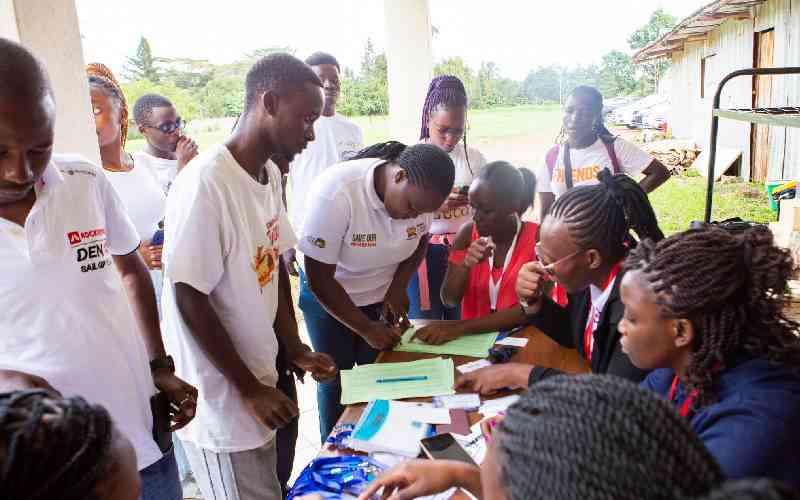By Brigid Chemweno
Kenya: Disability is often seen as a burden and shame in some communities. Others consider it as a spell from ancestors or divine punishment.
But a Catholic priest from Sons of Divine Providence congregation is giving the mentally challenged a second chance in life.
Fr Alejandro Ruiz has put a smile on faces of 40 children and youth living with mental disabilities in Kandara, Thika and the environs.
Orione Community Training Centre in Thika is an educational centre, which helps the mentally challenged children and youth access ordinary education.
Ruiz, who is the director of the centre, told The Standard that the children and youth with mental challenges undergoing training will reach their potential physically, socially and emotionally.
“We also provide physiotherapy to help rehabilitate the children where possible and hope to make them productive members in the society in the near future. We help them today so that they can be able to help others in future,” says Ruiz.
According to Beatrice Nyambura, a teacher at the centre, they offer rehabilitation to the mentally challenged, educate them and also offer vocational and occupational training like farming.
Cognitive skills
Those with severe cases are taught cognitive skills, communication skills and activities of daily living while those with mild cases are taught number work, communication skills and how to write their names.
The moderate can write and therefore they are taught reading and writing skills.
Ruiz says they came up with the idea of establishing a centre to cater for mentally disabled children in Thika after they discovered that in the parish and surrounding areas, there were more than 40 families with children and youths with mental conditions.
“In the course of our pastoral work within the communities, we identified the need to establish the centre in the region to cater for mentally disabled children after we discovered that there were many youth and children with mental disabilities,” said Ruiz.
The centre has a therapy room and a multi-sensory room.
Collins Maina, a teacher at the centre and also a therapist, says a majority of the children in the centre who have difficulties when walking are taught how to walk in the therapy room.
Stay informed. Subscribe to our newsletter
“We also have a nurse in the room who treats the children,” says Maina.
Lucy Wairimu, who is in charge of multi-sensory room, says stimulation of available senses is conducted to the children where light colours and water bubbles are used.
“Each child stays in the room for 40 minutes each day and one child is attended at a time,” Ms Wairimu told The Standard.
 The Standard Group Plc is a
multi-media organization with investments in media platforms spanning newspaper
print operations, television, radio broadcasting, digital and online services. The
Standard Group is recognized as a leading multi-media house in Kenya with a key
influence in matters of national and international interest.
The Standard Group Plc is a
multi-media organization with investments in media platforms spanning newspaper
print operations, television, radio broadcasting, digital and online services. The
Standard Group is recognized as a leading multi-media house in Kenya with a key
influence in matters of national and international interest.
 The Standard Group Plc is a
multi-media organization with investments in media platforms spanning newspaper
print operations, television, radio broadcasting, digital and online services. The
Standard Group is recognized as a leading multi-media house in Kenya with a key
influence in matters of national and international interest.
The Standard Group Plc is a
multi-media organization with investments in media platforms spanning newspaper
print operations, television, radio broadcasting, digital and online services. The
Standard Group is recognized as a leading multi-media house in Kenya with a key
influence in matters of national and international interest.







